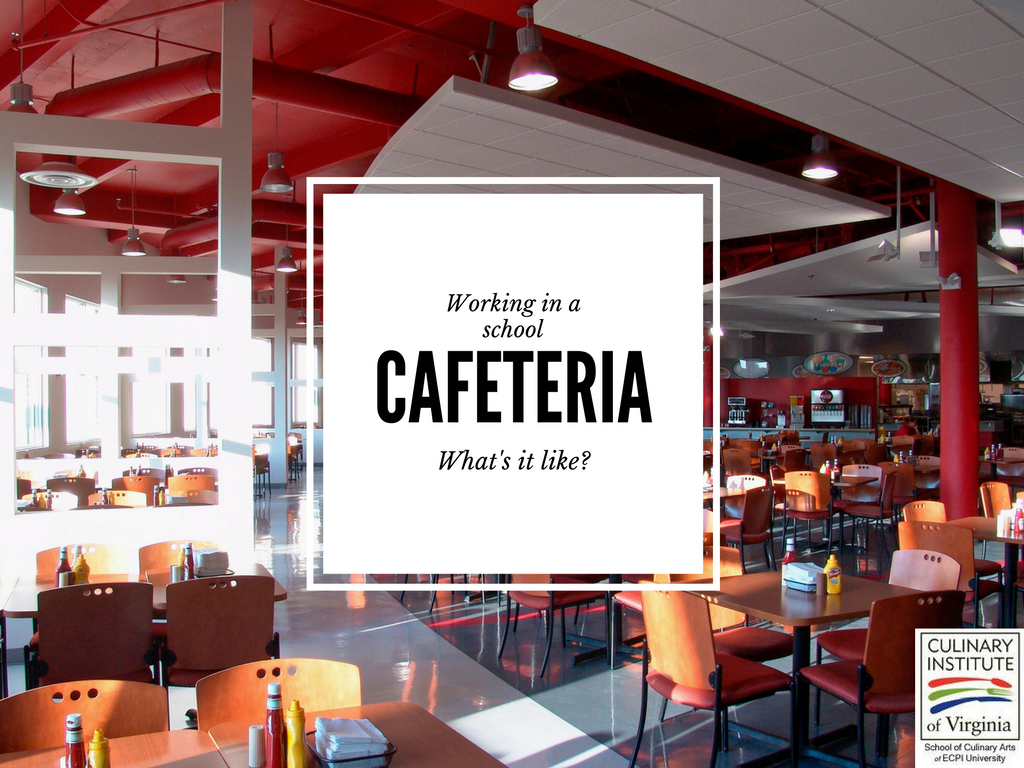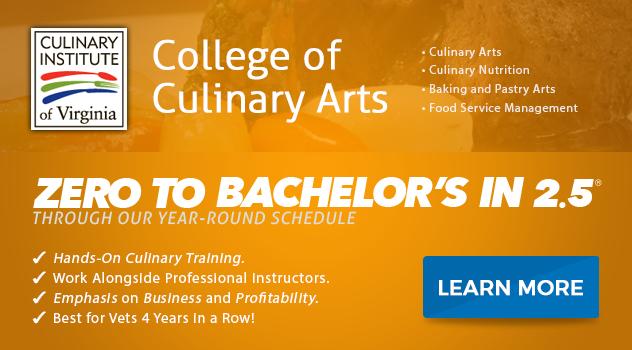
Working in a school cafeteria may not sound like the most advanced chef job around at first, but it's a job that involves more skill and stamina that many realize. Chefs in school kitchens, be it at an elementary school, high school, or university, have to be prepared to do more than just cook or plan a menu that looks hip. These are diverse careers that benefit from prior education in fields such as culinary nutrition.
You Do Everything
As a chef, you may spend much of your time in the kitchens in back, cooking up each dish. However, you'll also spend a good amount of time planning menus in accordance with local, state, and federal dietary guidelines, especially if you're cooking for students in high school or younger. You'll also spend time on administrative issues like ordering food and supplies, taking inventory, and possibly training other workers. You may end up doing a lot of heavy lifting and have to deal with constant cooking fumes, as well as constant movement between stations.
Very well-staffed cafeteria kitchens may have enough employees so that you can delegate many of the non-cooking and non-menu-planning tasks to other people. But you should still be prepared to take on a lot of the work yourself due to staff shortages or because it's simply a busy day. Keep in mind that in these jobs, you're typically cooking simple foods, but in bulk for hundreds if not thousands of students.
Your co-workers will vary depending on the type of school you're at. In elementary and middle schools, you won't really be working with students in the kitchens. In high schools, you may have a student volunteering. At colleges and universities, you will most likely have a large team of student employees handling much of the grunt work and front-line short-order cooking.
Nutrition Degrees Are Perfect for School Cafeteria Experience
When you work in school environments, even in university cafeterias where it's assumed students can feed themselves relatively well, you're still tasked with creating a range of dishes that form a healthy meal. You could simply take government guidelines and toss together a couple of basic dishes that you serve every day, but that monotony would eventually drive students off campus or into the arms of the vending machines nearby. Having a degree in nutrition allows you to create a wider range of dishes that students will like. You'll have a better sense of what substitutes can be used to preserve taste while reducing calories, for example.
You'll also have a better eye for picking out what students are choosing to eat more. If you notice they tend to go for sweeter or fattier dishes, for example, you can create similar dishes but with healthier ingredients substituted instead.
School Cafeteria Experience Builds Upon Previous Training
When you work in a school cafeteria, you get used to working with diverse populations in a busy, loud, high-volume environment without worrying too much about plating and other frou-frou details. School cafeteria cooking gives you a solid base of knowledge in how a professional kitchen works without distracting you with those decorative details. You can certainly create dishes and have special menus in a school, but kindergartners are not going to care if you placed a parsley garnish perfectly. That releases you, in a way, and you can concentrate on the nitty-gritty details that will help you flourish in other cooking environments should you leave the school eventually.
Are you interested in getting a degree in nutrition or training to become a chef? If so, ECPI University's Associate of Applied Science in Culinary Arts and Applied Nutrition would be a great place to start. This associates degree program, available at two locations in Virginia, offers a 60-credit-hour curriculum that looks at everything from basic success skills to all aspects of kitchen use and food preparation. There is also an externship requirement to give you real-world experience. Contact a helpful admissions advisor today to find out more about the program and whether chef and nutrition training is the right path for you.
It could be the Best Decision You Ever Make!
DISCLAIMER – ECPI University makes no claim, warranty, or guarantee as to actual employability or earning potential to current, past or future students or graduates of any educational program we offer. The ECPI University website is published for informational purposes only. Every effort is made to ensure the accuracy of information contained on the ECPI.edu domain; however, no warranty of accuracy is made. No contractual rights, either expressed or implied, are created by its content.
Gainful Employment Information – Culinary Nutrition - Associate’s
For more information about ECPI University or any of our programs click here: http://www.ecpi.edu/ or http://ow.ly/Ca1ya.



